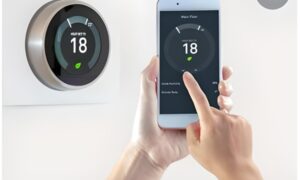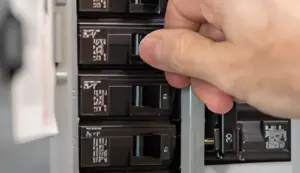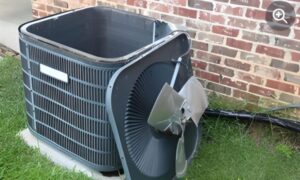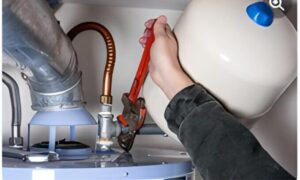In a world where energy consumption is a growing concern, finding ways to boost our savings while promoting sustainability has become paramount. The power of energy efficiency offers a compelling solution, not only for reducing our carbon footprint but also for saving money in the long run. From conducting an energy audit to identify areas of improvement, to implementing simple habits that optimize energy usage, there are numerous strategies that can make a tangible difference. But that's not all – upgrading outdated appliances and adopting smart heating and cooling practices can further enhance our savings potential. In this article, we will explore these strategies and more, revealing the secrets to supercharging your savings through the power of energy efficiency.
Energy Audit Benefits
An energy audit can provide valuable insights into your home's energy efficiency and help you identify areas where improvements can be made. By undergoing an energy audit, you can gain a comprehensive understanding of your home's energy consumption patterns and pinpoint areas that are contributing to unnecessary energy waste. The energy audit process typically involves a certified professional who will assess your home's insulation, heating and cooling systems, windows and doors, and appliances. Through this process, you can uncover potential energy leaks and inefficiencies that may be costing you money. Additionally, an energy audit can recommend cost-effective energy-saving measures such as sealing air leaks, upgrading insulation, and replacing outdated appliances with more energy-efficient models. By implementing these recommendations, you can reduce your energy consumption and save on your energy bills.
Tips for Reducing Energy Consumption
To achieve greater energy efficiency and reduce your energy consumption, implementing simple yet effective tips can make a significant difference in your home's energy usage. One tip is to embrace smart home technology, which allows you to control and monitor your energy usage remotely. By using smart thermostats, energy-efficient lighting systems, and smart power strips, you can optimize your energy consumption and reduce wastage. Another tip is to consider incorporating renewable energy sources into your home, such as solar panels or wind turbines. These sources generate clean and sustainable energy, reducing your reliance on fossil fuels and decreasing your carbon footprint. By following these tips, you can not only save money but also contribute to a more sustainable future.
Upgrading Appliances for Energy Efficiency
Upgrading your appliances to more energy-efficient models is a smart investment that can significantly reduce your energy consumption and save you money in the long run. When considering energy efficient appliance options, look for appliances with the ENERGY STAR qualification, as they use advanced technologies to reduce energy usage. Outdated appliances may contribute significantly to your energy consumption, so it is important to research energy-efficient appliances before making a purchase. The benefits of energy efficient appliances extend beyond energy savings. They also tend to have improved performance and durability, resulting in fewer repairs and replacements. Additionally, energy efficient appliances are environmentally friendly, reducing your carbon footprint. By upgrading your appliances, you not only enhance your energy efficiency but also enjoy the various advantages that come with it.
Heating and Cooling Efficiency Tips
Improving the efficiency of your heating and cooling system is essential for reducing energy consumption and maximizing savings. One way to achieve this is through smart thermostat installation. Smart thermostats allow you to control the temperature of your home remotely and set energy-saving schedules. By adjusting the temperature when you're away or asleep, you can significantly reduce energy waste. Another tip is to consider energy-efficient window treatments. These treatments, such as insulated curtains or blinds, can help regulate the amount of sunlight and heat that enters your home, reducing the workload on your heating and cooling system. By implementing these tips, you can enhance the efficiency of your heating and cooling system, leading to substantial energy savings.
Maximizing Natural Light and Controlling Temperature
Maximizing natural light and controlling temperature are key strategies for enhancing energy efficiency in your home. By utilizing natural light, you can reduce the need for artificial lighting, saving energy and money. Opening shades or curtains during the day allows sunlight to illuminate your space. On the other hand, closing them in the summer can help regulate temperature and reduce cooling needs. Additionally, improving insulation in your home can prevent heat loss in the winter and keep cool air inside during the summer, reducing the load on your heating and cooling systems. Incorporating smart home technology, such as programmable thermostats and automated blinds, can further optimize energy efficiency by allowing you to control temperature and natural light remotely. By implementing these strategies, you can maximize energy savings and create a more comfortable living environment.
Conserving Water for Energy Savings
Conserving water is a vital step towards achieving energy savings and promoting environmental sustainability in your home. One effective way to conserve water and save energy is through rainwater harvesting. By collecting rainwater, you can use it for various purposes such as watering your garden or flushing toilets, reducing the need for treated tap water. Another important aspect of conserving water is using efficient irrigation systems. Drip irrigation and smart controllers, for example, help deliver water directly to plants' roots and adjust watering schedules based on weather conditions, preventing wastage. These systems not only save water but also reduce the energy required to pump and treat water. By implementing rainwater harvesting and efficient irrigation systems, you can contribute to energy savings while conserving this precious resource.
Checking Your Home's Energy Leaks
To ensure optimal energy efficiency in your home, it is crucial to identify and address any potential energy leaks. By identifying energy leaks, you can take steps to improve insulation and reduce energy waste. One way to identify energy leaks is by conducting an energy audit, which involves a certified professional evaluating your home's energy efficiency. They will identify areas where your home may need caulking, insulation, or updated heating and cooling equipment. Improving insulation is another effective way to prevent energy leaks. By sealing windows and doors, you can prevent cold or hot air from entering your home, keeping it at a comfortable temperature and reducing the need for excessive heating or cooling. Taking these steps will not only save you money on energy bills but also help protect the environment.
Optimizing Energy Usage With Appliance Maintenance
Regular appliance maintenance is essential for optimizing energy usage and maximizing energy efficiency in your home. One important aspect of appliance maintenance is minimizing standby power and reducing phantom loads. Standby power refers to the energy consumed by appliances when they are not in use but still plugged in. Phantom loads are the hidden energy consumption of appliances that continue to draw power even when turned off. By regularly maintaining and servicing your appliances, you can ensure that they are operating at their highest efficiency and minimize the energy wasted through standby power and phantom loads. This can result in significant energy savings over time and contribute to a more sustainable and eco-friendly home.
Miscellaneous Energy-Saving Tips
With a focus on maximizing energy efficiency and reducing standby power and phantom loads, it is crucial to implement various miscellaneous energy-saving tips in your daily routine. One way to save energy is by using energy-efficient lighting. Replace traditional incandescent bulbs with LED or CFL bulbs, which can reduce energy consumption by up to 80%. Additionally, consider installing motion-sensor lights to automatically turn off when not in use. Another tip is to incorporate energy-saving landscaping practices. Planting trees strategically around your home can provide shade in the summer, reducing the need for air conditioning. Similarly, using native plants that require less water can help conserve water and reduce the energy needed for irrigation. By implementing these simple tips, you can further enhance your energy savings and contribute to a more sustainable future.









